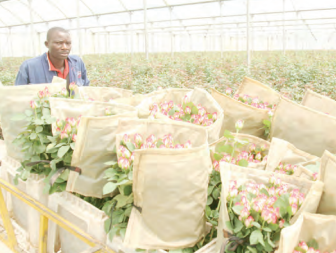
Exporters and importers in Kenya are against new inspection and phytosanitary fees on agricultural products set to become effective on December 1, warning that Kenya will lose out in the international markets.
Kenya Plant Health Inspectorate Service (Kephis) has announced a number of charges on these produces targeted at both fresh produces and aother agricultural products being moved by sea and air, in a fresh push by the authority to generate more revenues.
The fees include 50 cents per kilogramme, with a minimum charge of Sh100, and an additional Sh500 per phytosanitary certificate and inspection. This is targeted at all fresh produce exports.
For imported agricultural produces, traders will pay 50 cents per kilograme plus Sh600 per plant import permit. Kephis will also charge between Sh500 and Sh10,000 for inspection of ships depending on the size (including dhows and canoes), aircrafts, containers and other tests such as moisture content determination.
These are under physical tests, examination and inspection by the state corporation mandated to assure quality of agricultural produce and products, while also preventing the introduction and spread of pests and diseases.
The regulated articles include sea vessels, sea containers, aircraft and wood packaging materials, all of which are inspected in accordance with Kephis Act of 2012, Plant Protection Act and Legal Notice 48 of 2009, it noted in a letter to industry players and other state agencies.
“Kephis will fully enforce the stipulated charges for the inspection of imported and exported agricultural produce and regulated articles. This includes sea vessels and their flight containers, and aircrafts to ensure compliance with phytosanitary standards. The charges will come into effect starting 01 December, 2024,” managing director Theophilus Mutui said.
However, traders led by the Shippers Council of Eastern Africa (SCEA) now says the move will increase freight costs with Kenyan products becoming more expensive in the global markets, hence drop in sales and earnings for the country.
“These new fees are unacceptable. They will lead to uncompetitive of our exports,” SCEA chief executive Agayo Ogambi said yesterday. The charges, traders have said, are also not corresponding to the services where for instance, 50 cents per kg for all fresh produce for a 40 foot container is almost Sh20,000. “The container, vessel and aircraft inspection fees are exorbitant. We urge the Ministries of National Treasury, Agriculture and Ministry of Industry, Trade and Investment to re-think the frequent and arbitrary introduction and of the levies,” Ogambi said.
Shipping lines have already reviewed their charges to cover for the new fees by Kephis. Current cost per one 40-foot reefer container for instance, at an average of 22 metric tonnes of fresh produce has increased from Sh1, 500 to Sh11,000 for inspection while phytosanitary has increased from Sh500 to Sh11,500.
If a business is, say, exporting an estimate of 400–40 foot reefer units of fresh produce, it means annual phytosanitary costs will increase from Sh600,000 to Sh4.6 million, a 670 per cent increase.
“We need to re-think funding of the various government agencies involved in trade facilitation. That they have resorted to raise revenue through the levies for their sustainability is increasing the costs of business, making Kenya an expensive business environment, said Ogambi.”
The new fees come in the wake
of a drop in export volumes by the
country, amid increasing competition from other exporting nations.
In the first six months of 2024,
Kenya exported 214,676 metric
tonnes of cut flowers, fruits and
vegetables, a decrease from 291,118
metric tonnes in the same period
in 2023, data by the Kenya National
Bureau of Statistics indicates.
The fees are also expected to hit
other exports including avocado
with Kenya also being a net exporter of carrots, asian vegetables and
high value fresh vegetables, while
depending heavily on potato and
onion imports.










